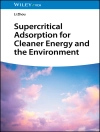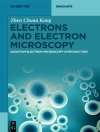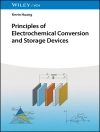The Advances in Chemical Physics seriesthe cutting edge of research in chemical physics
The Advances in Chemical Physics series provides the chemical physics and physical chemistry fields with a forum for critical, authoritative evaluations of advances in every area of the discipline. Filled with cutting-edge research reported in a cohesive manner not found elsewhere in the literature, each volume of the Advances in Chemical Physics series presents contributions from internationally renowned chemists and serves as the perfect supplement to any advanced graduate class devoted to the study of chemical physics.
This volume explores:
- Electron Spin Resonance Studies of Supercooled Water
- Water-like Anomalies of Core-Softened Fluids: Dependence on the Trajectories in (P, ϱ, T) Space
- Water Proton Environment: A New Water Anomaly at Atomic Scale?
- Polymorphism and Anomalous Melting in Isotropic Fluids
- Computer Simulations of Liquid Silica: Water-Like Thermodynamic and Dynamic Anomalies, and the Evidence for Polyamorphism
Spis treści
Electron Spin Resonance Studies of Supercooled Water 1
By Debamalya Banerjee, Subray V. Bhat, and Dino Leporini
Pressure-Driven Liquid–Liquid Transformations and Corresponding Bizarre Viscosity Behavior 29
By Vadim V. Brazhkin, Yoshinori Katayama, Masami Kanzaki, and Alexander G. Lyapin
The Stability Limit and Other Open Questions on Water at Negative Pressure 51
By Frederic Caupin and Abraham D. Stroock
Water-Like Anomalies of Core-Softened Fluids: Dependence on the Trajectories in (PρT ) Space 81
By Yu. D. Fomin and V. N. Ryzhov
High-Frequency Dynamics of Liquids Through a Liquid–Liquid Transition: The Case of CS 101
By Valentina Maria Giordano and G. Monaco
The Liquid–Liquid Phase Transition, Anomalous Properties, and Glass Behavior of Polymorphic Liquids 113
By Nicolas Giovambattista
Amorphous ICES 139
By Nicolas Giovambattista, Katrin Amann-Winkel, and Thomas Loerting
Water Proton Environment: A New Water Anomaly at Atomic Scale? 175
By A. Giuliani, M. A. Ricci, and F. Bruni
Polymorphism and Anomalous Melting in Isotropic Fluids 189
By Gianpietro Malescio
Transport and Dynamics in Supercooled Confined Water 203
By Francesco Mallamace, Carmelo Corsaro, Sow-Hsin Chen, and H. Eugene Stanley
Water and Biological Macromolecules 263
By Francesco Mallamace, Carmelo Corsaro, Domenico Mallamace, H. Eugene Stanley, and Sow-Hsin Chen
Polyamorphism and Liquid–Liquid Phase Transitions in Amorphous
Silicon and Supercooled Al2O3–Y2O3 Liquids 309
By Paul F. Mc Millan, G. Neville Greaves, Mark Wilson, Martin C. Wilding, and Dominik Daisenberger
Polyamorphism in Water 355
By Osamu Mishima
Computer Simulations of Liquid Silica: Water-Like Thermodynamic and Dynamic Anomalies, and the Evidence for Polyamorphism 373
By Ivan Saika-Voivod and Peter H. Poole
Polymorphism in Lattice Models 385
By Marcia M. Szortyka, Mauricio Girardi, Carlos E. Fiore, Vera B. Henriques, and Marcia C. Barbosa
Cooperative Bond Ordering in Liquid: Its Link to Liquid Polymorphism and Water-Like Anomalies 399
By Hajime Tanaka
Statistical Mechanical Approach to the Thermodynamic Stability of Clathrate Hydrates 421
By Hideki Tanaka and Masakazu Matsumoto
Liquid–Liquid Phase Transition in Supercooled Silicon 463
By Vishwas V. Vasisht and Srikanth Sastry
Similarities of the Collective Interfacial Dynamics of Grain Boundaries and Nanoparticles to Glass-Forming Liquids 519
By Hao Zhang and Jack F. Douglas
Author Index 569
Subject Index 611
O autorze
H. EUGENE STANLEY is the Professor of Physics, Chemistry, Biomedical Engineering, and Physiology (School of Medicine) at Boston University. His current research focuses on understanding the anomalous behavior of liquid water, and he has made contributions to understanding complex systems, such as quantifying correlations among the constituents of the Alzheimer brain. He is one of the founding fathers of econophysics and has won the prestigious Boltzmann Award and Julius Edgar Lilienfeld Prize, among other notable achievements.
STUART A. RICE received his master’s and doctorate from Harvard University and was a junior fellow at Harvard for two years before joining the faculty of The University of Chicago in 1957, where he is currently the Frank P. Hixon Distinguished Service Professor Emeritus.
AARON R. DINNER received his bachelor’s degree from Harvard University, after which he conducted postdoctoral research at the University of Oxford and the University of California, Berkeley. He joined the faculty at The University of Chicago in 2003.












